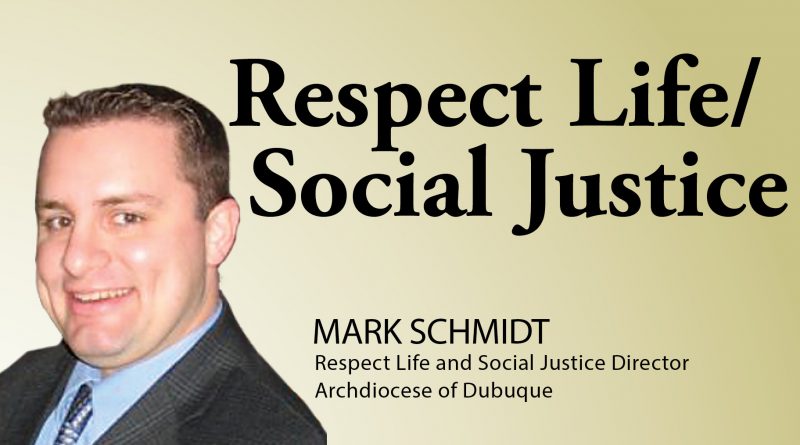St. Dymphna and the church’s response to mental illness
If you or someone you know is thinking about suicide, call the Suicide Prevention Hotline at 1-800-273-8255 for assistance or go to suicidepreventionlifeline.org. The Lifeline provides 24/7, free and confidential support for people in distress, prevention and crisis resources for you or your loved ones, and best practices for professionals.
If you or someone you know is living with mental illness, counseling services may be available in your area from Catholic Charities of the Archdiocese of Dubuque. Find out more at: https://www.catholiccharitiesdubuque.org/catholic-charities-services/counseling-services/.
You may never have heard of St. Dymphna, but this seventh-century saint and her witness of a truly Christian approach to mental illness and those who live with mental illness is a lesson sorely needed in our own time. Saint Dymphna, born in Ireland, fled her home and eventually settled in Geel, Belgium, and opened an institution for the poor and those suffering from mental illness. Rather than ostracizing and exploiting those with mental illness, she helped build a community of welcome and acceptance. People with mental illness were incorporated into everyday life, and rather than being treated as objects of derision, became members of their adopted community. The culture of welcome and care continues to this day in Geel where families still welcome people with mental illness.
Mental illness is more common in our society than we may realize. According to the National Alliance on Mental Illness (NAMI), approximately one in five adults and teens are currently living with a mental illness. That is almost twice as common as heart disease (11.5 percent) in U.S. adults (Center for Disease Control, Fast Stats, updated May 2017). Even so, mental health is often left untreated. The majority of teens and adults with mental illness do not receive regular care (NAMI), if any care at all.
A sad fact of life for those with mental illness is the stigma that surrounds it. When violence occurs in society it is often blamed on mental illness. And while certain instances of violence where mental illness was a factor do exist, the way violence is reported in our news misrepresents mental illness and those who live with it. The reality is that people with mental illness are far more likely to be victims of violence than perpetrators. Another sad fact is that our prisons and jails across the country are the largest providers of medical care to those with mental illness. Instead of ensuring access to care and developing an inclusive culture that welcomes and supports the mentally ill, our society locks up the mentally ill in places where their health and well-being is often ignored. The isolation and rigor of prison and jails further complicates mental illness.
Lack of access to care is also related to rates of suicide. According to the CDC, suicide rates are rising all across the country. Those with a terminal diagnosis are especially vulnerable. As state legislatures, including Iowa’s, attempt to pass legislation to legalize doctor-prescribed suicide (assisted suicide, aid in dying), it is important to recognize how dangerous such laws are on the mentally ill, both those with a terminal diagnosis and those who are otherwise healthy individuals. Evidence exists that doctor-prescribed suicide increases suicide rates across the board, not just among the terminally ill. People with a terminal diagnosis need quality palliative and hospice care, not “assistance” to end their lives. When treated for their underlying mental illness and care for their other needs occur, the desire to commit suicide among the terminally ill is dramatically reduced.
Our society needs to build structures and a culture that modes that of St. Dymphna. Establish a culture of encounter, one that does not stigmatize those with mental illness, which would allow people more comfort in seeking care. We must also develop more systemic and empowering systems to make sure that people with mental illness have adequate access to care, regardless of their ability to pay. September is Suicide Prevention Month, and it reminds us that every suicide is tragic, whether done by someone who has a terminal diagnosis or someone who is otherwise physically healthy. Suicide is not the answer.
To learn more about St. Dymphna and the church’s response to mental illness, go to this month’s Formation for All program session on mental illness and suicide. Sessions are designed for all ages. To access these sessions go to: dbqarch.org/rlsj/formation.
This column includes information drawn from an article by Sarah L. Desmarais, Richard A. Van Dorn, Kiersten L. Johnson, Kevin J. Grimm, Kevin S. Douglas and Marvin S. Swartz called “Community Violence Perpetration and Victimization Among Adults With Mental Illnesses,” American Journal of Public Health 104, no. 12 (December 1, 2014): pp. 2342-2349.



